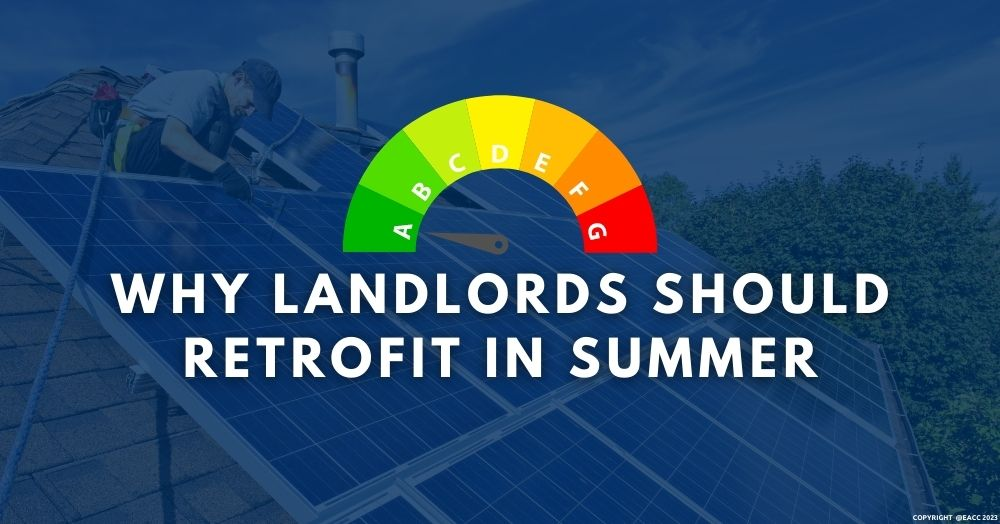We look at why landlords should consider improving their property’s energy efficiency.
With summer officially starting in a few weeks, most people will have banished all thoughts of winter and the dark, damp days that go with it.
But there’s a good reason why landlords should look beyond the sunny skies of the here and now to the colder months.
And here’s why.
Summer is a good time to get your property ready for winter by making changes that will improve its energy efficiency and reduce heating costs.
Here are three reasons why retrofitting in summer makes good sense.
1) Good weather
It makes life easier for builders and tradespeople when they don’t have to contend with heavy downpours or snow, and there’s no risk of traipsing mud inside. Jobs like installing solar panels and heat pumps and replacing windows are best carried out in the warmer months.
2) Longer days
In the summer, there are more daylight hours, meaning tradespeople can work for extended periods, should they wish. This means jobs can be finished more quickly, minimising disruption to your tenants.
3) Availability of skilled tradespeople
Plumbers and boiler specialists usually work their socks off in autumn and winter – when people use their boilers more frequently, and breakdowns are common. So if you want to replace an ageing boiler with a more environmentally friendly model, do it in summer.
So where should landlords start?
There’s no one-size-fits-all solution to improving a home’s energy efficiency – it all depends on the age and current condition of the property.
You may have clear ideas about the work you’d like to do to your rental property, but if you’re unsure or would like a second opinion, speak to your letting agent.
They’ll be able to make useful suggestions about what’s best for your property and advise on the works that will add the most value should you wish to sell later.
And your letting agent should be able to recommend reliable tradespeople.
Contact us at Scottish Property Centre today for more information about making your rental property more energy efficient.


 By
By 



Share this with
Email
Facebook
Messenger
Twitter
Pinterest
LinkedIn
Copy this link